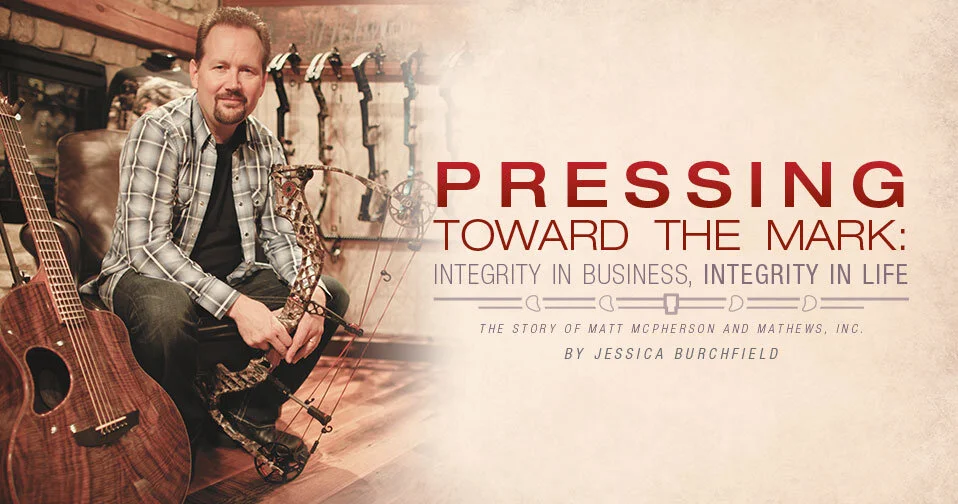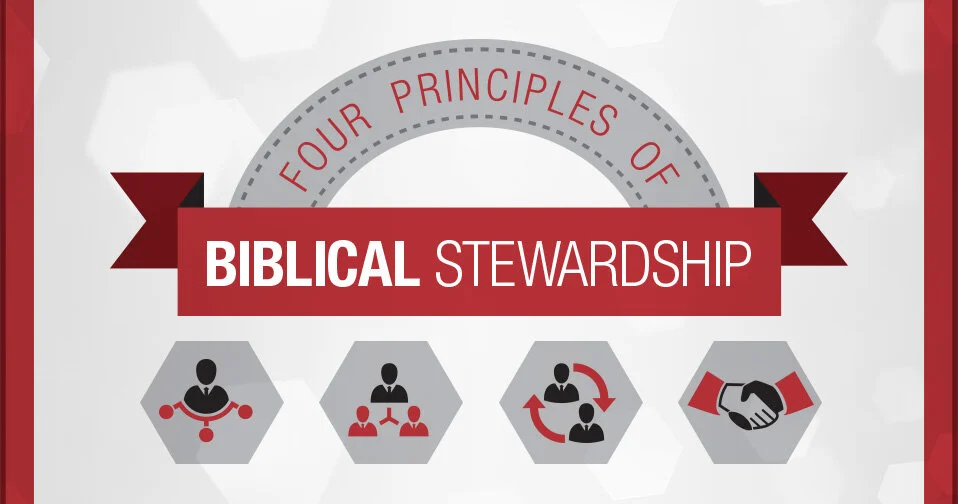Kingdom Companies Group: A Solution to Aid in the Practice of Stewardship
This article is the first of the 2020 CEF Whitepapers that we are posting. For more information on the Christian Economic Forum, please visit their website here.
— by Alan Barnhart
The concept for the Kingdom Companies Group came from the journey that Katherine and I have experienced in our attempt to operate a business as stewards for the Most High God. As fallen creatures we have done so imperfectly and have learned lessons through our failures.
Barnhart Crane and Rigging Co. started in 1986. Prior to starting the company, we had engaged the Bible for guidance and we found extensive material there. It led us to adopt the following commitments prior to starting the company:
God is the Owner. We are stewards with no claims of ownership.
Money is dangerous. There is a human tendency to be greedy, to serve money, to hoard, to claim rights to earthly possessions. To counteract these pitfalls, we committed to a limited lifestyle and to see company profits as the property of God’s Kingdom.
Shared stewardship—we engaged believers in our company to hold us accountable and to join us in the process of distributing company profits.
Initially, the ownership commitment was not legally binding; however, in 2008 we embraced a legal structure that allowed us to transfer 99% of the ownership interest in the company to a charitable trust and the remaining 1% (with all voting rights) to a Voting Trust that is also owned by a charitable organization but is controlled by a Board of Trustees. This structure has provided the following benefits:
A permanent ownership structure less subject to a lifespan or individual human frailties.
A vehicle for succession of the stewardship of the company without taxes or the dangerous transfer of wealth to a person. This has reduced our anxiety about succession planning.
A substantially reduced tax burden.
A Kingdom purpose that is permanent and clear to all current and future stewards.
Our Owner has allowed us to experience freedom and joy as we have endeavored to be faithful stewards for the last 34 years. People have heard our story and some have desired to structure their companies in a similar way. We have joined together with a few of these people to form the Kingdom Companies Group. The following describes each KCG company:
Expectations
Owned by a charitable trust
Controlled by a Board of Trustees
Limited salary with incentives
Profit invested in Kingdom charities—35%+
Elements
Profitable and growing
Long-term focus (as opposed to prepping for a sale)
People development
Healthy culture
Local care teams
GROVE Invitation—GROVE is the team that develops the Kingdom investment strategies (charitable giving)
Quality compensation/benefits
Benefits for participants
Succession plan including emergency response plan
Board of Trustees to prevent mission drift
Accountability and counsel from the KCG Council
Shared talent
Capital
Reduced taxes—<8% federal (current tax law)
Possible shared services (back office, legal, etc.)
Decision-making process for Kingdom investments—GROVE
Eternal Rewards
Kingdom Companies Group Structure
The charitable trusts that hold the primary ownership (99%) of each entity do not provide oversight. They hold the stock and if a company is sold, they will receive the proceeds. Those proceeds cannot go back to the original owner or to any individual. They are charitable funds and the trusts exist to channel funds to ministries. The GROVE group or a similar designee can provide “advice” as to the ministries to be funded and the advice will be followed in most cases.
The voting rights for each entity reside in a Voting Trust. The Voting Trust is controlled by a Board of Trustees. The Board of Trustees:
Represent the owner
Monitor progress and results
Install and remove the Board of Directors
Approve compensation plans
Guard the mission
Provide guidance
Confirm the appointment of each CEO
Each company has a Board of Directors that appoint the CEO and oversee and approve corporate activities. Each company also has a Senior Leadership Team with following functions:
Run the business units
Define and implement strategy
Develop a talent pool
Ensure ministry to and through team members
Kingdom Companies Council
In addition to common control through the Board of Trustees, the companies are connected through a group we call the KCG Council, which is not a legal entity but more of a roundtable. It is made up of CEOs of each major company plus a few at-large positions. The Council provides informal accountability and guidance. We meet quarterly and topics include:
Acquisitions
Culture
Strategy/implementation/annual plan
Ministry/care teams
Current challenges
A role of the Council is to facilitate talent and resource development and allocation. Several key team members have moved temporarily or permanently from one company in the group to another. While legally we are completely separate companies, we are in essence under common ownership in that God is the ultimate Owner of each company.
Disclaimer: The Kingdom Companies Group is in its early stages. We have been operating a “Kingdom-owned” company for 12 years but only added the second company in January of 2019. Two additional companies joined in late 2019. This is all very new. We have already experienced some struggles as one of the companies that joined had substantial challenges. We are not currently recruiting other companies to join our KCG. All current companies are in a similar industry (industrial contracting). As we get our systems in place and work out the kinks, we may expand and broaden. More likely, we will encourage others to form their own groups around sectors, geographies and/or relationships.
The thought of “giving away” your company seems absurd to most owners. We see it differently. Everything we have has come from God; we have a temporary stewardship whether we acknowledge that or not. Jesus warned us many times about the dangers of wealth and power. As John 10:10 says, our enemy can and will use earthly wealth and power to kill, steal and destroy. Jesus came to set us free and give us abundant life. Luke 12 and I Timothy 6 and many other passages contain dire warnings. Christians are not immune from the danger, especially successful businesspeople. In an effort to thwart the enemy and maximize our contribution to the body of Christ, we should heed the warnings and take preventative measures—for our sake and for those who will come after us.
I rewatched the Lord of the Rings movies recently and was struck by two concepts. The powerful hold that power (and by extension wealth) can have on us (the Ring) and the benefit of having others on our journey. Frodo could not have done it without Sam and the Company. Relinquishing control can be brutally difficult. Bilbo struggled. It cost Frodo his finger. A band of brothers and sisters can make a huge difference; accountability is a valuable asset. The Kingdom Companies Group provides accountability and access to the wisdom of fellow stewards
I am not recruiting you into the KCG but I would encourage you consider an ownership structure for your company or assets that addresses the danger of wealth and power and to do so with others who are on a similar journey.
Related articles
——
[ Photo by You X Ventures on Unsplash ]




























What 1 Timothy 6:9-10 Has to Say to Entrepreneurs about success and the love of money.